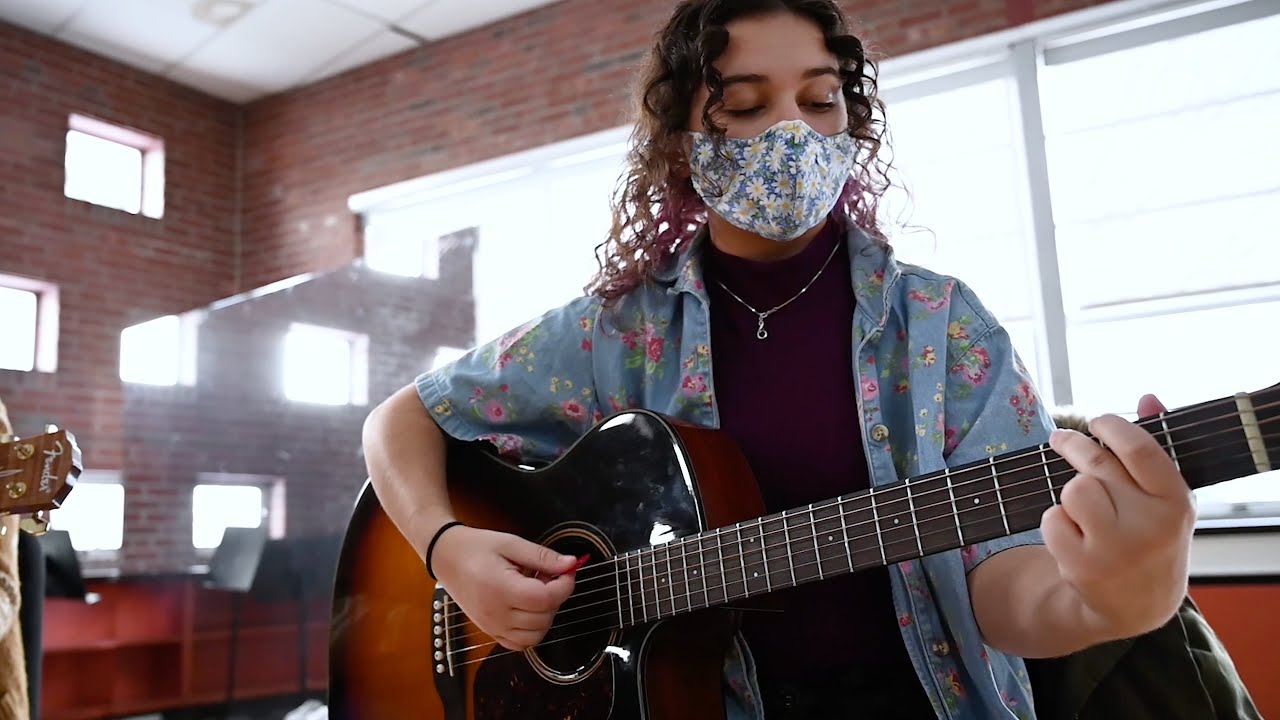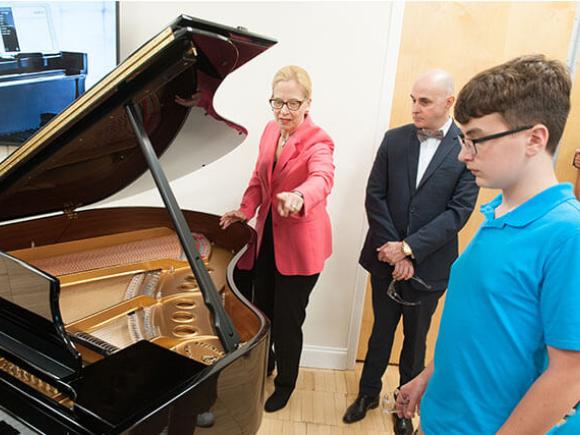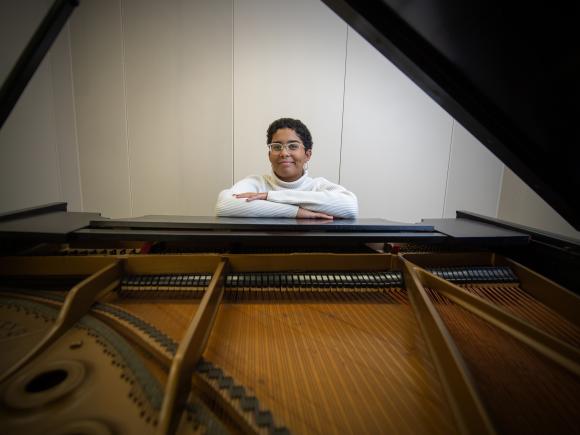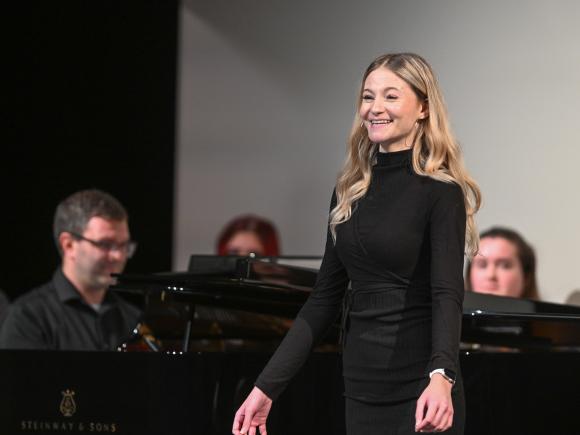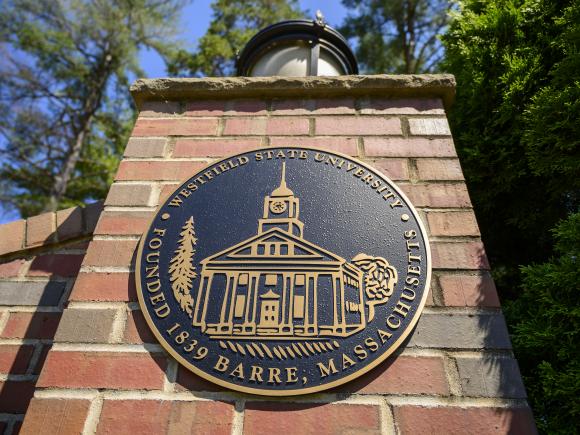As a music therapy major, you can prepare for an engaging career using the power of music to improve clients’ lives. The music therapy program at Westfield combines specialized and versatile musicianship with cutting-edge research for real-world application in clinical music therapy.
When you become a music therapy major, you’ll fine-tune your musical skills with coursework in areas like singing, guitar and piano, digital music production, songwriting, and improvisation, alongside in-depth study of music history and music theory. At the same time, you’ll learn the science and the art of applying your musical skill and knowledge to improve well-being through courses in music therapy, psychology, cultural studies, and health sciences.
The degree program is designed to be completed in four years plus internship. If you are a transfer student or already have an associate degree in music, the music therapy bachelor’s degree typically will take two years of full- or part-time study plus internship. An audition is part of the application process, helping to ensure that applicants have the musical skills necessary to succeed in this field.
Music Therapy Equivalency Program
The music therapy equivalency program is designed for students who have already completed a bachelor’s degree in another area, like psychology or music performance, and want to become a professional music therapist. This program provides you the opportunity to complete all the requirements for becoming a professional music therapist that you have not already completed in your prior degree. Every equivalency student has an individualized course of study tailored to their prior skills and knowledge, using your own unique background as a strength in becoming a board-certified music therapist. The equivalency program typically takes four semesters plus internship.
